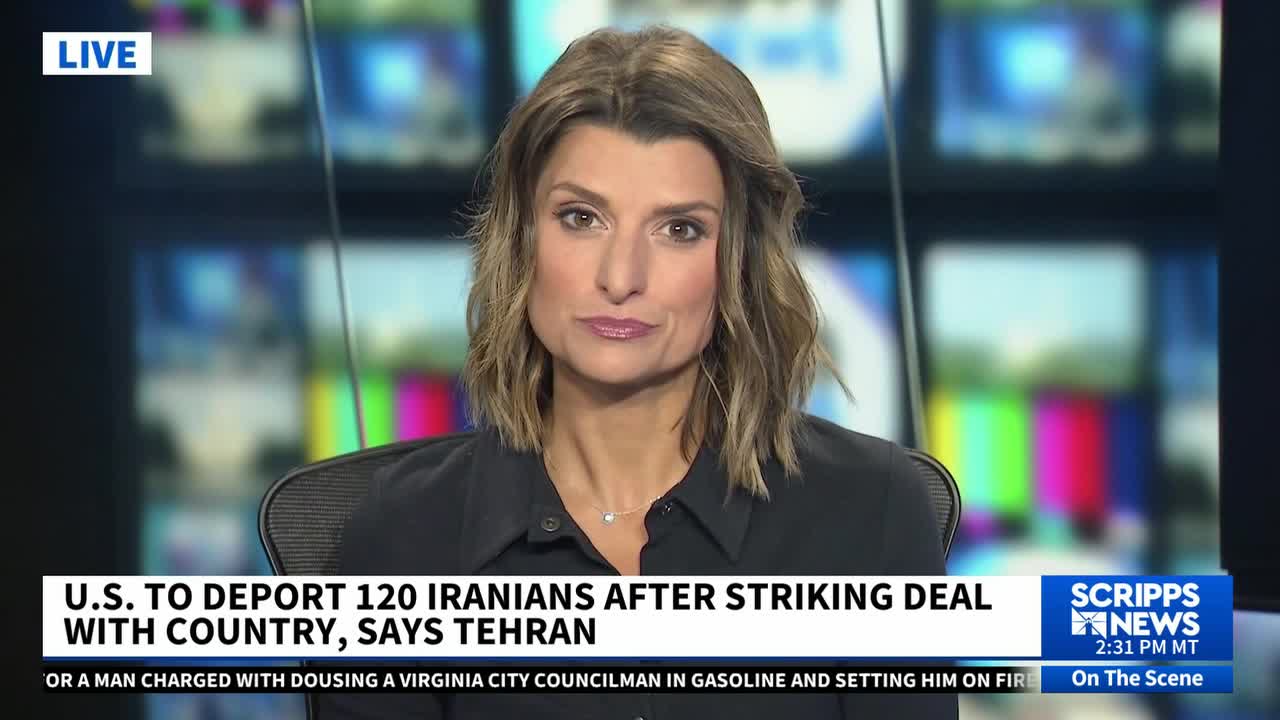The United States will deport hundreds of Iranians back to Iran in the coming weeks, with the first 120 deportees being prepared for a flight in the next day or two, Iran said Tuesday.
The deportation of Iranians, not yet publicly acknowledged by the U.S. government, comes as tensions remain high between the two countries following the American bombings of Iranian nuclear sites in June.
Meanwhile, the United Nations reimposed sanctions on Iran this past week over its nuclear program, putting new pressure on the Islamic Republic's ailing economy.
The deportations also represent a collision of a top priority of President Donald Trump — targeting illegal immigration — against a decadeslong practice by the U.S. of welcoming Iranian dissidents, exiles and others since the 1979 Islamic Revolution.
As many as 400 Iranians would be returning to Iran as part of the deal with the U.S., Iranian state television said, citing Hossein Noushabadi, director-general for parliamentary affairs at Iran’s Foreign Ministry. He said the majority of those people had crossed into the U.S. from Mexico illegally, while some faced other immigration issues.
Noushabadi said the first planeload of Iranians would arrive in a day or two, after stopping over in Qatar on the way. Authorities in Qatar have not confirmed that.
IN CASE YOU MISSED IT | How close is Iran to a nuclear weapon? Experts and officials disagree
The U.S. State Department and the Department of Homeland Security did not immediately respond to requests for comment. The New York Times first reported the deportations.
In the lead up to and after Iran’s 1979 Islamic Revolution, a large number of Iranians fled to the U.S. In the decades since, the U.S. had been sensitive in allowing those fleeing from Iran over religious, sexual or political persecution to seek residency.
In the 2024 fiscal year, for instance, the U.S. deported only 20 Iranians, according to statistics from U.S. Immigration and Customs Enforcement.
Iran has criticized Washington for hosting dissidents and others in the past. U.S. federal prosecutors have accused Iran of hiring hitmen to target dissidents as well in America.
It’s unclear exactly what has changed now in American policy. However, since returning to the White House, Trump has cracked down on those living in the U.S. illegally.
Noushabadi said that American authorities unilaterally made the decision without consultations with Iran.
But The New York Times said Tuesday, citing anonymous Iranian officials, that the deportations were “the culmination of months of discussions between the two countries.”
Iran's Foreign Minister Abbas Araghchi, as well as President Masoud Pezeshkian, both attended the U.N. General Assembly in New York last week as a last-ditch effort to stop the reimposed sanctions. However, Iran’s supreme leader Ayatollah Ali Khamenei boxed in their efforts by describing diplomacy with the U.S. as a “sheer dead end.”
Speaking to state TV in footage aired Tuesday, Araghchi acknowledged that direct communication from Iran went to the U.S. government during the U.N. visit — something he had been careful not to highlight during five rounds of nuclear negotiations with the Americans earlier this year.
“With Americans, both directly and indirectly, messages were exchanged, and eventually, we are relieved that we did whatever it was necessary," Araghchi said. "It was clear and evident to us after the interpretation the Supreme Leader made that negotiations with Americans is an obvious dead-end.”




